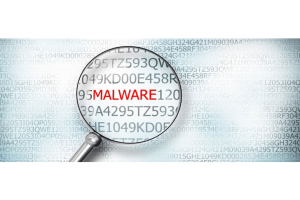Internet shopping might be one of this era’s biggest achievements, but it is also a channel where a lot of hackers thrive. You might enjoy shopping as much as you want, but it is also vital to protect yourself while doing so. Here are some precautions you should take when making purchases online.
Use A Good Anti Malware Program
 This is already very obvious, but a lot of people still ignore the age-old advice to install anti-malware software You are at constant danger of exposing confidential information including bank details when you shop online and having reliable anti-malware device can protect you from unwanted interference.
This is already very obvious, but a lot of people still ignore the age-old advice to install anti-malware software You are at constant danger of exposing confidential information including bank details when you shop online and having reliable anti-malware device can protect you from unwanted interference.
To make sure that your security program works reliably, make sure that everything is up to date. Most programs can automatically update themselves but do check first that auto updating is enabled. Viruses, too, can adapt and mutate, so it is important to use a program that can detect newly-created or mutated viruses.
[su_quote cite="Newton Lee" class="cust-pagination"]“As the world is increasingly interconnected, everyone shares the responsibility of securing cyberspace.”[/su_quote]
Do Research
There are as many shopping websites now as there are stores in your own neighbourhood. However, be aware that not everything that sells something online is reliable or legitimate. In a place where everything thrives, you have to protect yourself from fake websites.
Online giants such as eBay and Amazon are already very reliable for making online purchases, but don’t be too confident. Be sure to check out purchaser ratings and feedback first. Having a high score on eBay is hard to achieve and almost all with good purchase records are reliable sellers.
Do Not Trust Social Media Friends
 Hackers take social media as an effective channel for perpetrating their evil plans, and this is why a lot of them thrive through Facebook and Twitter. Sadly, a lot of people might think that links that are recommended by friends are reliable and so they click anyway.
Hackers take social media as an effective channel for perpetrating their evil plans, and this is why a lot of them thrive through Facebook and Twitter. Sadly, a lot of people might think that links that are recommended by friends are reliable and so they click anyway.
McAfee has identified dozens of examples including free dinner offers at great restaurants and shopper invitations. Offers that are too good to be true have also been identified as a common lure which innocent people fall for, especially those who are not too Internet savvy. Users are cautioned against clicking on questionable alerts from friends who themselves might have been hacked as well.
Upgrade Passwords
You might think that you have the best and most secure password in the world, but expert hackers can get that information no matter how hard you hide it. While you should make sure that your password is hard to decipher, also still change them regularly, especially for those sites where you divulge your bank details.
It is advised not to use common and simple words and, instead, use long combinations of characters that have numbers and symbols. Never use your birthday as a password since this is the first combination that hackers try.
Use a Credit Card instead of a Debit Card

Credit Cards can be a safer choice for online shopping. If someone manages to get your financial information, they can do less damage and you can have more accessible remedies than if you would have used a debit card.
This is because credit cards have spending limits. Debit cards, however, are directly linked to your bank account. For credit card purchases, you can dispute fraudulent charges with a low credit limit and this is even easier for online purchases. Banks now offer virtual credits cards that are made for online shopping. These are more secure than your typical credit and debit cards.
Shopping online is freedom because you no longer have to dress up to get something for yourself. You can have things purchased, delivered and performed without having to leave your desk. However, it comes with some risks. Because you can be prone to get robbed or scammed, these are tips that you should always remember the next time you log on and click Buy. Do you have any other online shopping tips? Share with us your thoughts in the comments below.

